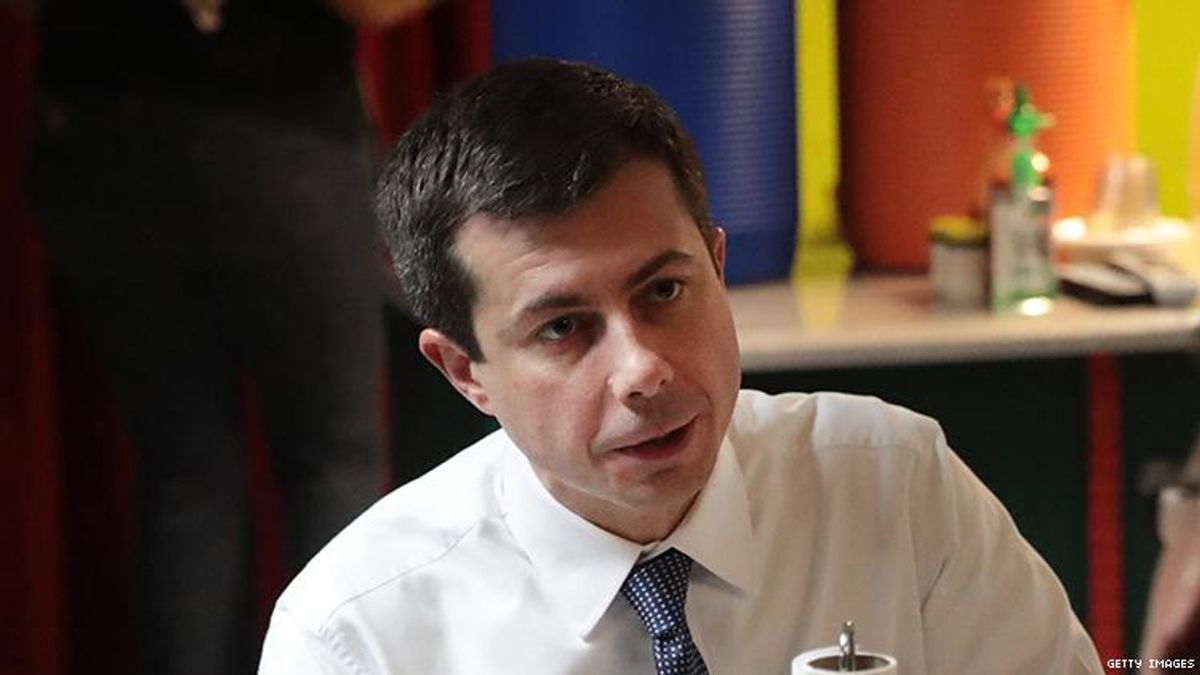It was February 2004, and President George W. Bush was headed to the podium to make an announcement we had been expecting. I was co-leading a historic campaign for U.S. Senate to replace the retiring Sen. Fritz Hollings, and this announcement was our worst nightmare. It would force us to take a position -- and that was the point.
For weeks, we had been huddling. What would our position be on the Federal Marriage Amendment, an amendment to the U.S. Constitution that would define marriage as the union between one man and one woman? We had a Democrat running in a deep red state in a year that was likely to reelect a popular president. But our candidate -- State Superintendent of Education Inez Tenenbaum, who I had helped elect to two terms in her current office -- was the most popular elected official in South Carolina, and we were running ahead in the polls.
I was gay -- I still am. But anyone with any sense could see that this issue was kryptonite. Our internal polling showed that 82 percent of South Carolinians opposed same-sex marriage, and of those 82 percent, well more than half would not even consider voting for a candidate who did not share their position. Our campaign would be dead in the water before we ever got started if we made a misstep.
Behind closed doors, I lobbied hard for our candidate to support the amendment and put this issue to bed. Otherwise, what was the point of even running? And so on that day in February 2004 as President Bush walked to the podium to declare his support for "traditional marriage," so did we. Of course, I was conflicted. But I also wanted to win. And I knew if we could withstand this politically motivated stunt by the GOP, my candidate would be a reliable vote for LGBTQ equality in the U.S. Senate where it really mattered and when it really mattered. And she would have been.
Who knows what would have happened if we had done the opposite, but 16 years later, who cares? We lost that campaign. And we were living in a world where it was unfathomable that there would be a time when my husband and I could be married -- or gay, lesbian, and bisexual people could serve openly in America's military -- or that transgender actress Laverne Cox would grace the cover of Time magazine as the legendary media outlet proclaimed a transgender "tipping point" in media.
Or that a married gay man would be among the top-tier candidates for the Democratic presidential nomination going into the Iowa caucuses on Monday night.
The Buttigieg phenomenon has been nothing short of extraordinary. It doesn't matter whether you agree with him on the issues, and for the record, I am still uncommitted to any candidate in the race. But I have been deeply hurt to see him attacked and demeaned by our fellow progressives as he has ascended to the top of the pack -- outlasting sitting U.S. senators, governors, and more, I might add.
I get it. Pete Buttigieg is not just the personification of all that we have achieved as an LGBTQ community; he is also the personification of all we haven't achieved. Yes, he is a veteran who served in our military before the repeal of "don't ask, don't tell." Yes, is married to Chasten, which only became possible through litigation that traveled all the way to the U.S. Supreme Court and was decided less than five years ago.
But Pete Buttigieg has also spent his time as mayor partnering with the Salvation Army, an anti-LGBTQ organization that is able to discriminate because we do not yet have employment protections for LGBTQ people -- and which even when we do, may fall into some carve-out for religious exemptions as a faith-based organization. And there is no question that he is a privileged white gay man who has benefited greatly from the parts of his identity which make him "palatable" for the "middle" of the country, who tend to like their candidates moderate and sanitized. His very presence in this race reminds us that the tide of the LGBTQ movement has not yet lifted all boats. And that's to say nothing of his challenges when it comes to race relations in his hometown of South Bend, Ind.
But as we head into Monday's Iowa caucuses, I can't help but be proud of Pete Buttigieg. He may not become president this time around -- or ever. But in many ways, he has done something even more powerful. A married gay veteran, he has represented our community extraordinarily well against the bright, hot lights of a national campaign. Has it been perfect? Of course not. Nothing is. But it has been important.
Back in May, when he Chasten appeared on the cover of Time magazine themselves, I felt the heralding of perhaps yet another tipping point, and I think it has come to pass. A gay candidate for president of the United States can run a credible, well-funded race and capture the attention and support of mainstream voters.
Will he land a surprise win in Iowa on Monday night? That remains to be seen. But I know that there are thousands of kids all across this country who feel different, who feel marginalized, who feel left out -- who perhaps for the first time in their lives now believe that anything is possible.
And that's worth a lot.
Zeke Stokes is president of ZS Strategies.


















































































Here's our dream all-queer cast for 'The White Lotus' season 4